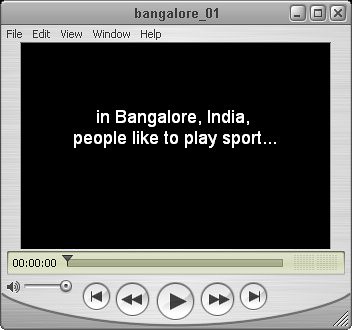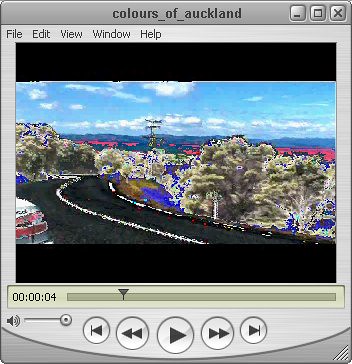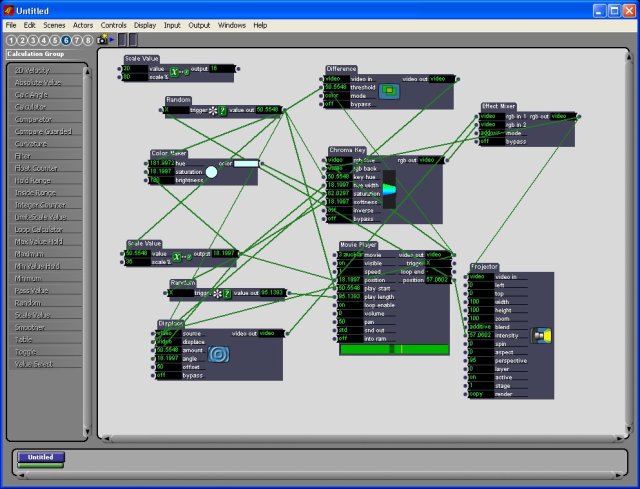Submitted by kathy on Wed, 25/01/2006 - 20:03
it looks like my next work project is in Delhi, India so I've been reading more of the sarai website contributions. the Cybermohalla scratchbook is quite interesting - a collection of writings, thoughts, images and texts from the members contributing at the Compughar. many of the people are from the villages and settlements. it's interesting to read their thoughts and observations of the spaces they live in.
Submitted by kathy on Tue, 03/01/2006 - 15:21
Finding my old bookmark files has made me nostalgic for the early computing days when everything was new and exciting and full of possibilities. One of my favourite magazines back in the early 90s was Mondo 2000. It was hard to get - only a few places in Brisbane stocked it, actually only two that I recall and even then it was occasional. By the time I got round to subscribing to the magazine it had finished being published and I lost my subscription renewal to the cause so to speak. At the time, it was cutting edge and the full gloss images and interviews with leading thinkers made it a great read. R.U. Sirius who was the editor of the mag has a podcast these days and can be found around mondoglobo.net. Here's a collection of links to mondo 2000 stuff:
mondo articles from the well (link updated : original link broken 25/09/2008 : http://www.well.com:70/1/Publications/MONDO )
Submitted by kathy on Thu, 29/12/2005 - 18:57
Submitted by kathy on Wed, 28/12/2005 - 18:32
A vlog entry from my trip to Bangalore...

click on the image to goto the video player page
Submitted by kathy on Wed, 28/12/2005 - 14:28

click on the image to goto the video player page
I've been spending the Christmas break learning more about interactive quicktime, max/msp and isadora for creating music and video and publishing them on the net. Below is the first piece I've created. I went a bit overboard on the effects in Isadora but it's an original piece and I learnt from it so I'm happy with it overall from a learning experience point of view.
How I created it:
- first I took videos with my dvd camera
- then I used DVDx to convert the .vob files to mpeg2 files which quicktime could open. when I installed winamp a couple of weeks ago, I noticed it can display video now also, though strangely, sometimes the winamp videos were upside down whilst they played correctly orientated in quicktime. (perhaps I used strange setting whilst encoding?)
- then I imported the video into isadora, and patched up a storm whilst trying out some of the effects
- I can only save 5sec clips from isadora as I'm using the trial version whilst I work out if I'll use it regularly in future. I'm hoping to learn how to do similar tasks in jitter (max component) as I'll have more control of what I'm doing, even though it's very quick and easy to get things done in isadora without having to know the code. still yet to decide on this.
- once I had the processed video clips, I opened them in quicktime again and joined them together - hence the rough edits
- then I made a couple of text tracks in quicktime and added these in. I tried out the eZediaQTI app whilst learning about the text tracks but decided on doing them manually in quicktime and editing the controls with notepad.
- next, I opened the gps data music patch I made in max/msp and ran it with the soundwalk recordings I made the other week whilst at Mission Beach in Auckland. unfortunately, the mic was picking up a lot of noise from the wind blowing past the mic pickup so there's a lot of distortion. I filtered some of this out in audacity and flattened the audio into one track.
- then I added the audio track to the video with text quicktime movie
- then uploaded the finished piece to archive.org using ourmedia and viewed source on the movie's ourmedia page & copied the quicktime player code here
well, I'm sure there's a quicker way of doing it! which requires less processing and time, but this was an exercise in creating an original piece from start to finish. as you can tell, I'm not a designer or very good programmer either, but I'm happy to finish number one. here's hoping the subsequent efforts will improve and be done more efficiently. I could have used the original unprocessed videos but they seemed a little plain. need to find the right balance I guess..
here's a screen shot of the isadora patch:

Submitted by kathy on Sun, 06/11/2005 - 16:15
 Today I read "Grassroots - a field guide for feminist activism" by Jennifer Baumgardner & Amy Richards. It's a DIY feminist activism book that gives examples of how everyday women can perform activist activities without having to be too radical. Examples are from high school, university students, women at work and in their local communities. Baumgardner and Richards speak about and provide contact details for many organisations performing and supporting feminist activism projects. I've included some links in the feminism and activism links on this site if you are interested in finding out more, otherwise track down the book from your local bookstore..
Today I read "Grassroots - a field guide for feminist activism" by Jennifer Baumgardner & Amy Richards. It's a DIY feminist activism book that gives examples of how everyday women can perform activist activities without having to be too radical. Examples are from high school, university students, women at work and in their local communities. Baumgardner and Richards speak about and provide contact details for many organisations performing and supporting feminist activism projects. I've included some links in the feminism and activism links on this site if you are interested in finding out more, otherwise track down the book from your local bookstore..
The authors, who also co-wrote "Manifesta", define activism (page xix, Prologue) as:
Submitted by kathy on Sat, 05/11/2005 - 15:16
 I've just finished reading "Where you're at - notes from the frontline of a hip hop planet" by Patrick Neate. I thought it was a great book - sometimes he went off on a few tangents, but they provided interesting background information on the context of the hip hop communities in the different cities covered in the book. I'm now re-reading/skimming through it to post up some notes on sections I found most thought provoking. Much of the underlying thread of the book is about the cultural misappropriation of hip hop.
I've just finished reading "Where you're at - notes from the frontline of a hip hop planet" by Patrick Neate. I thought it was a great book - sometimes he went off on a few tangents, but they provided interesting background information on the context of the hip hop communities in the different cities covered in the book. I'm now re-reading/skimming through it to post up some notes on sections I found most thought provoking. Much of the underlying thread of the book is about the cultural misappropriation of hip hop.
from Part One: New York
page 30
Submitted by AliaK on Sat, 28/05/2005 - 11:59
"Thoughts and words ran in me that words and writing were all nothing, and must die, for action is the life of all, and if thou dost not act, thou dost nothing"
-- Gerrard Winstanley, one of the English Diggers - who through exlemparary direct action demanded the abolishment of private property and encouraged the poor to reclaim the commons. (1649)
Submitted by AliaK on Wed, 27/04/2005 - 21:33
Techgnosis: Myth, Magic and Mysticism in the Age of Information
by Erik Davis
done - I bought it!!
Submitted by AliaK on Sun, 24/04/2005 - 02:12
========================================================================
I wanted to gather together URLs for purchase etc. of my work available
online. This is probably incomplete, but for those who are interested,
it
is probably useful. Note that Printed Matter carries a number of things.
I definitely recommend the books - VEL, The Wayward, Sophia, .echo.
There
are days I wish I was a store. Those are the days I could still wish.
Submitted by AliaK on Sat, 26/03/2005 - 22:44
max/msp course notes
19 March 2005
Goldsmiths College, London
bang & toggle -> easy way to see what's going on in the patch; test; use it to print values
apple m = status window
number box passes on info when it receives the bang
toggle
- off when 0 (int)
- on for any other int value
- if it gets a float, it truncates the decimal to give 0 or 1 eg 1.57 would give 1; 0.73 would give 0
Submitted by AliaK on Wed, 23/02/2005 - 22:09
macromedia dreamweaver course
planning:
- purpose
- who will visit; what gear will they have to connect/view
- create outline/diagram:
- how will information flow
- how will users navigate throughout the site
- what do you want the site to look like; design, colours
- draw a rough mock-up of site
creating pages:
- line break instead of paragraph break, use shift-enter
Pages